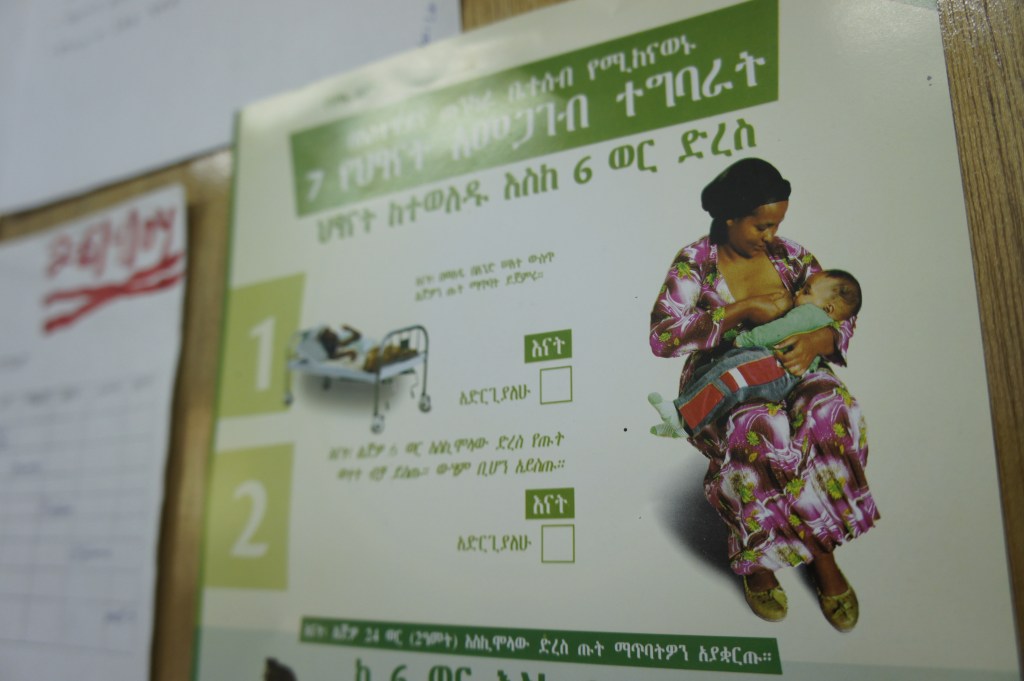Throughout my travels to health facilities in Ethiopia last week with Save the Children I was heartened to see so many positive messages about breastfeeding on posters and printed materials for mothers to take home. I also saw several mothers breastfeeding their babies everywhere we went.
In Ethiopia 52% of babies are put to the breast within one hour of being born and 52% of babies are exclusively breastfed through six months according to Save the Children’s State of the World’s Mothers 2012 report. While that number can definitely be improved Ethiopia has been given a “good” rating by Save the Children along with countries such as Rwanda and Eritrea that have percentages for the aforementioned breastfeeding indicators around the 70% range. Only four countries have been given “very good” ratings and they are Malawi, Madagascar, Peru and the Solomon Islands.
In Ethiopia, only 51% of babies are breastfed with complementary foods from 6-9 months, but from 20 – 23 months 82% of all toddlers are still being breastfed. Ethiopia was also given a “good” rating for policy support of the WHO code (International Code of Marketing of Breast-milk Substitutes).
What I did not like seeing at a government-run hospital’s maternity ward was a promotion for Pfizer Nutrition infant formula. That means a pharmaceutical rep came into the maternity ward and influenced health workers to advise mothers to use infant formula. With a child mortality rate that is not on track to reach Millennium Development Goal 4 in 2015, promoting anything other than exclusive breastfeeding is detrimental to the overall health of Ethiopia’s children. In fact, in Africa babies who are breastfed are six times more likely to survive the first few months of life than non-breastfed babies, according to State of the World’s Mothers 2012.
Ethiopia should take a page out of Kenya‘s book and enact a new law regarding advertising of infant formula in health settings. Kenya’s new law now forbids kickbacks from pharmaceutical reps to health workers.
Related articles
- Exclusive Breastfeeding Increases in Kenya (mombloggersforsocialgood.com)
- Bishoftu Hospital’s Maternity Ward (mombloggersforsocialgood.com)
- Ethiopia’s Health Care Model, Workers (mombloggersforsocialgood.com)
- Mothers in Ethiopia and Newborn Care (mombloggersforsocialgood.com)
Photos: Jennifer James




Leave a reply to luanne Cancel reply